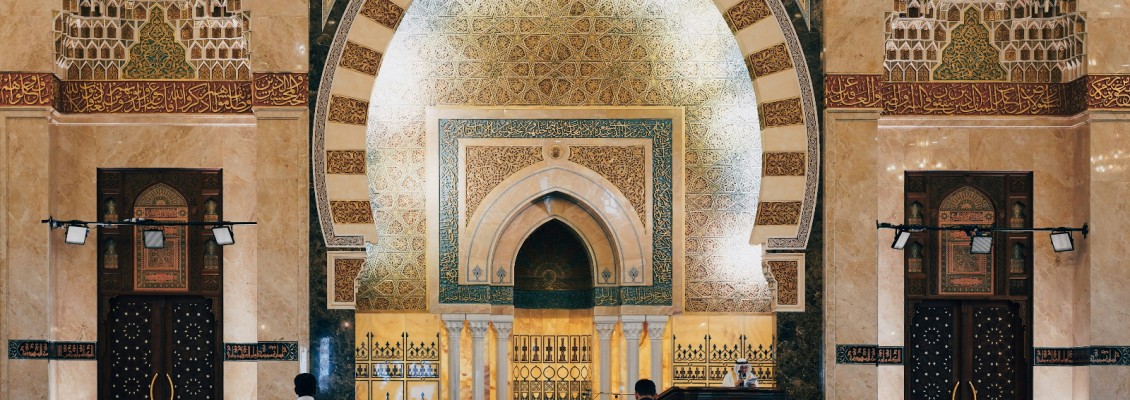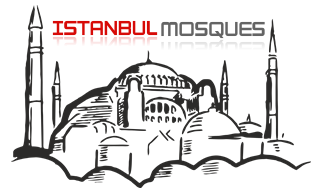
THE ROLE OF MOSQUES AS COMMUNITY CENTERS
Mosques are worshiping places in Islam and they have a significant role in both daily life and in religious life. That is because they are not just places of prayer for Muslims as they serve vibrant social spaces that bring people together for various purposes. Both in the past and present, these places act as the heart of communities fostering a strong sense of community and connection. In this article, I will focus on the social aspects of mosques.
The term "masjid," originating from the Arabic root "sujud," directly connects to the act of prostration in prayer. In essence, "masjid" translates to "the place that is prostrated," highlighting the significance of the place where Muslims come together to bow in prayer and submission. On the other hand, the term "Jamii," derived from the root "Jam," meaning "to gather," encapsulates the communal aspect of mosques. It explicitly refers to the function of mosques as places where people gather, not only for collective worship but also for a multitude of other purposes.
Originally, mosques were simple and modest structures, serving as places for Muslims to gather for prayers. Over time, however, they have undergone transformations, both in size and embellishments. As Islamic civilizations flourished and expanded, so did the architecture of mosques. Larger and more intricate designs began to emerge, reflecting the cultural and artistic influences of the regions where they were built. The expansion allowed mosques to accommodate growing communities and provide additional space for various activities beyond prayers.
From the beginning, mosques weren't just for prayers – they were places to learn. People of all ages would come to mosques to study the Quran, the Prophet's teachings, Islamic laws, and other subjects related to Islam. What's interesting is that they didn't only focus on religious topics; there were also lessons on things like math, astronomy, medicine and so on. Everyone, from kids to older folks, gathered in mosques to get education according to their needs. Even today, kids go to mosques to learn how to read the Quran. There are also other educational events in some mosques such as seminars.
We can see these functions when we look at the sayings of Prophet Muhammad and his companions. It was firstly a place to worship. However, In the mosque, Prophet Muhammad, as the head of the community, actively engaged with people, addressing their problems, discussing communal issues, and providing guidance. Moreover, study circles would be established to focus on different topics, especially on the Quran. The mosque also functioned as medical centers, where individuals sought treatment for their ailments. Beyond spiritual and intellectual pursuits, mosques accommodated sports activities, such as archery.
A vital aspect of mosques and their role in the community is the practice of charity. In traditional mosques, a special feature known as the "charity stone" played a significant role in facilitating acts of generosity. This structure was designed to allow people to contribute money, and those in need could discreetly take what they required. Also, most of the time a foundation would be set up near the mosque to fund the mosque and the help the needed ones. Today's mosques typically don't have physical foundations or charity stones. Instead, officials within the mosque take on the responsibility of directly collecting charitable donations from those willing to contribute. These funds are then used for various purposes, including supporting the mosque's operations and assisting individuals facing financial challenges. These help can also be done through volunteers. Particularly in times of crisis, such as earthquakes or floods, where communities face urgent needs, individuals and volunteers play a crucial role in providing both financial and hands-on support.
In history, mosques acted as communal centers, facilitating the sharing of news, updates, and discussions on matters that affected the community. Prophet Muhammad and caliphates would discuss matters related to community with people in the mosque and reach a consensus. The congregational prayers in the later periods, especially the Friday congregations, offered a great opportunity for individuals to come together and stay informed about various aspects of their society. Sermons preached to the community were both religions in nature and politic as they created a breach between the rulers and subjects. Subjects could deliver their request and complaints with intermediaries.
In conclusion, mosques play a crucial role both in the religious and social life of people. In addition to gathering people during the prayer time, they serve as educational, political and communal purposes which make them an inseparable part of Islamic culture and Muslims.

Leave a Comment